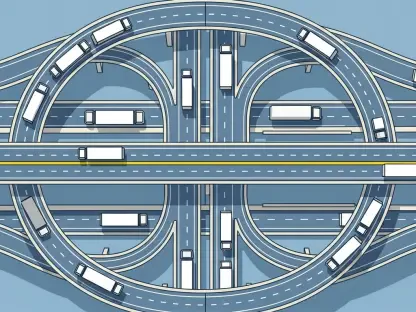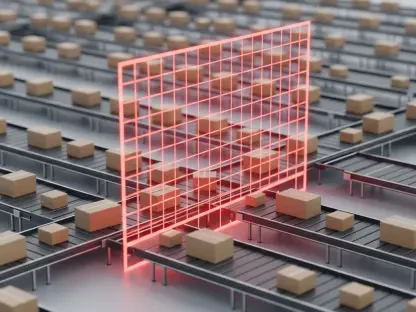In the dynamic landscape of electric mobility and startup innovation, Rohit Laila stands out as a seasoned expert with extensive experience in logistics, technology, and supply chain management. With a deep passion for advancing the electric mobility sector through innovative solutions, he shares insightful perspectives on Yulu’s ambitious strategies and the broader market trends. In this interview, we explore Yulu’s funding initiatives, market positioning, technological advancements, and plans to transform last-mile delivery for quick commerce.
Can you explain Yulu’s goals with the recent $75-80 million fundraising in your Series C round?
Yulu’s primary goal with this fundraising is to capitalize on the increasing demand in the quick commerce and hyperlocal delivery segments. By raising $75-80 million in their Series C round, they intend to expand their fleet and operational reach significantly. This aligns with their plan to secure $100 million in funding, enabling them to reinforce their market presence and address the burgeoning needs of the sector effectively.
What sparked the decision to capitalize on the demand in quick commerce and hyperlocal delivery segments?
The surge in e-commerce and the growing importance of rapid deliveries have created an ideal environment for companies like Yulu. Recognizing this trend, Yulu has strategically positioned itself to leverage its electric mobility solutions for sustainable and efficient last-mile delivery, which is crucial for the quick commerce and hyperlocal delivery segments they are targeting.
How do you see the electric mobility market evolving in the context of quick commerce?
In the context of quick commerce, the electric mobility market is poised for rapid evolution. The demand for timely deliveries necessitates solutions that are both environmentally friendly and cost-effective. Electric vehicles (EVs) are essential in this transformation, offering a sustainable approach while reducing operational costs and meeting the urban demand for swift parcel deliveries.
Can you provide more details about the mix of debt and equity in this funding round?
The funding round is structured as a blend of debt and equity, which provides Yulu with the flexibility needed to balance growth investments and financial sustainability. This strategy ensures they can expand their technology infrastructure and operational network while managing financial commitments effectively to support long-term objectives.
Who are the potential investors involved in the latest funding round apart from Bajaj Auto Ltd. and Magna?
Apart from the ongoing support from Bajaj Auto Ltd. and Magna, Yulu is in discussion with several investors and institutions in India and abroad. These potential investors have shown significant interest given Yulu’s successful track record and market potential, which positions the company as an attractive investment opportunity in the rapidly growing electric mobility sector.
How do you plan to expand Yulu’s fleet size and operational footprint with this new funding?
Yulu intends to use the new funding to substantially increase its fleet of electric vehicles and extend its presence in key urban areas across Tier 1 and Tier 2 cities. By bolstering their technology and operational network, they aim to address the rising demand more efficiently and enhance their service capability in quick commerce scenarios.
What are the key factors contributing to Yulu’s strong product-market fit in the quick commerce sector?
Yulu’s remarkable product-market fit stems from its innovative electric mobility solutions tailored for dense urban environments, which facilitate efficient last-mile delivery. Their focus on sustainability, cost efficiency, and user-friendly technological integration addresses specific needs in the quick commerce sector, making Yulu a preferred provider.
Could you elaborate on Yulu’s success in last-mile delivery services?
Yulu has achieved considerable success in last-mile delivery by leveraging its agile fleet of electric vehicles that are optimally designed for urban logistics. Their approach minimizes delivery times while reducing environmental impact, thus creating a strong value proposition for companies seeking sustainable delivery solutions.
How does Yulu aim to be the go-to provider for sustainable last-mile logistics?
By consistently innovating and expanding their fleet and technology infrastructure, Yulu aims to solidify its position as the leading provider of sustainable last-mile logistics. They prioritize environmental sustainability and operational excellence, meeting the growing expectations for green delivery solutions in urban regions.
What has been the impact of previous investments by Bajaj Auto Ltd. and Magna on Yulu’s growth?
The previous investments from Bajaj Auto Ltd. and Magna have been crucial for Yulu, enabling strategic growth and technology enhancements. These collaborations provided financial support and industry expertise, which helped Yulu refine their electric vehicle offerings and scale operations effectively.
How crucial is the continued participation of Bajaj Auto Ltd. and Magna in this round for Yulu?
The continued support from Bajaj Auto Ltd. and Magna is vital for Yulu’s confidence and growth trajectory. Their involvement not only brings crucial financial backing but also strengthens industry partnerships, facilitating greater innovation and positioning Yulu advantageously in the electric mobility market.
In what ways is Yulu planning to enhance its technology infrastructure with the new capital?
With the influx of new capital, Yulu plans to upgrade their technology infrastructure to improve vehicle management systems, enhance user interfaces, and optimize operational efficiencies. These advancements will further streamline their service delivery, improving customer satisfaction and operational effectiveness.
How does Yulu plan to increase electric vehicle availability across Tier 1 and Tier 2 cities?
Yulu intends to boost its electric vehicle presence by expanding its operations into new urban centers while increasing fleet size in existing markets. This strategic expansion is tailored to meet growing demands in both Tier 1 and Tier 2 cities, aligning with urban mobility trends and supporting regional growth.
What challenges does Yulu foresee in building a more robust operational network?
Building a more robust operational network presents challenges such as infrastructure development, regulatory compliance, and competition from peers. Yulu must navigate these hurdles while ensuring quality service and maintaining operational efficiencies to successfully scale their network.
How does Yulu differentiate itself from other players in the electric mobility space focusing on last-mile delivery?
Yulu differentiates itself through its commitment to sustainability, innovative approach to urban mobility, and strong technological integration. Their focus on customizable electric mobility solutions and seamless user experience positions them uniquely among competitors in the last-mile delivery domain.
What ambitious goals does Yulu have for the next phase of its growth?
In its next growth phase, Yulu aims to expand its fleet and operational reach further, strengthen technological capabilities, and enhance customer experience. These goals align with their vision of leading the electric mobility transformation in quick commerce and logistics sectors.
How important is sustainability in Yulu’s business strategy, especially for last-mile logistics?
Sustainability is a cornerstone of Yulu’s strategy, influencing all aspects of its operations. Their dedication to reducing carbon emissions and promoting green logistics is vital for their success and positions Yulu as a leader in sustainable urban delivery solutions.
Can you share insights into Yulu’s strategic vision for the next 5-10 years in the electric mobility sector?
Yulu envisions a transition to widespread EV adoption within the next 5-10 years. They aim to lead this shift by expanding their electric mobility solutions, strengthening partnerships, and innovating in both technology and operations to cater to evolving urban logistics needs.
How does Yulu plan to maintain a competitive edge as demand and competition increase?
Yulu’s competitive edge will be maintained through continuous innovation, strategic partnerships, and scaling operations. By consistently delivering high-quality, sustainable solutions and adapting to market demands, Yulu ensures its relevance and leadership in the electric mobility sector.
Do you have any advice for our readers?
For those exploring opportunities in the electric mobility sector, focus on innovation aligned with sustainability goals. Understanding market dynamics and leveraging technology will pave the way for growth and success in this rapidly evolving industry.









